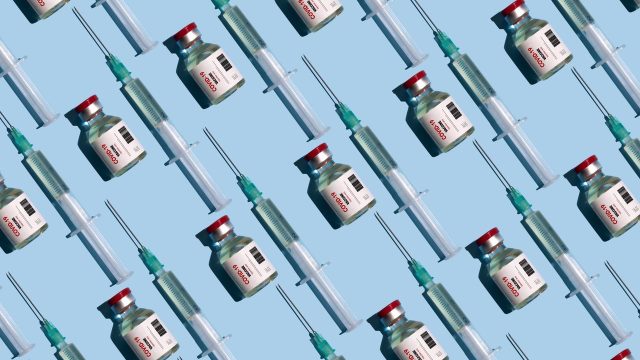
The Covid-19 shot may have further-reaching benefits than previously thought, as mRNA vaccines appear to help increase the effectiveness of immunotherapy in cancer patients. Widespread use of the vaccine could lead to better medical outcomes for thousands, while still being low-cost and easily accessible.
A jab at cancer treatment
Covid-19 mRNA vaccines could help boost the immune system to fight off cancer, according to a study published in the journal Nature. The study looked at the clinical outcomes for over 1,000 patients with late-stage melanoma or lung cancer who were treated with a form of immunotherapy called immune checkpoint inhibitors. This is a “common approach doctors use to train the immune system to kill cancer” by “blocking a protein that tumor cells make to turn off immune cells, enabling the immune system to continue killing cancer,” the authors of the study said at The Conversation. The findings showed that “patients who received either the Pfizer or Moderna mRNA-based Covid-19 vaccine within 100 days of starting immunotherapy were more than twice as likely to be alive after three years compared with those who didn’t receive either vaccine.”
While those undergoing cancer treatment are more susceptible to contracting viruses like Covid-19, the extended lifespan was attributed to the mRNA in the vaccine, which appeared to “help the immune system respond better to the cutting-edge cancer treatment,” according to The Associated Press. “We are really tapping into that natural process that your body already knows how to respond to,” Jeff Coller, a professor of RNA biology and therapeutics at Johns Hopkins Medicine, said to NBC News. “You are using your body’s natural system to fight tumors.”
Another shot
“This data is incredibly exciting,” Adam Grippin, the lead author of the study, said to The Washington Post. “But it needs to be confirmed in a Phase III clinical trial.” The researchers hope that if the upcoming clinical trial confirms their findings, “this widely available, low-cost intervention could extend the benefits of immunotherapy to millions of patients who otherwise would not benefit from this therapy,” said the study authors. This is not the first time mRNA vaccines have been used to treat cancer, either. Scientists have “developed personalized mRNA cancer vaccines that are tailored to fight a person’s unique tumor, as well as ones that target genes that are commonly found in certain types of cancer, including pancreatic,” said NBC News.
Unlike other vaccine therapies, Covid-19 mRNA vaccines do not “need to be personalized” and “could be administered at any time during a patient’s treatment,” said the study authors. Despite this, the Trump administration has been openly wary of mRNA vaccines and vaccines in general. The administration “terminated 22 mRNA vaccine development investments because the data showed they failed to protect effectively against upper respiratory infections like Covid,” said the Department of Health and Human Services in a recent statement to the Post.
They boost the immune system




